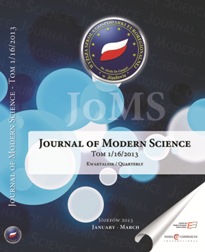The modeling of quality management of educational organization. (youth and adults)
The modeling of quality management of educational organization. (youth and adults)
Author(s): Dalia Martišauskienė, Kęstutis TrakšelysSubject(s): Education, Management and complex organizations, Sociology of Education
Published by: Wydawnictwo Akademii Nauk Stosowanych WSGE im. A. De Gasperi w Józefowie
Keywords: educational services; educational organization; quality management;
Summary/Abstract: This paper analyzes the analysis the modeling of quality management of educational organization. In democratic society implementing the quality of possibilities, the aim of education allows to elaborate people’s responsibilities and capacities” necessary for the realization of individuals personal functions in society. Thus a big attention is paid to educational organization as well. Modern, educational organization as organizations strive to provide the services of qualitative education and satisfy children’s and parents’ needs, which are as particular consumers’ wishes, the conception that something is lacking or everything is good, and the expectations are related to desires aimed at perspective. Thus any organization in accordance to the opinion of quality management theorists has always to be interested in consumers’ needs and expectations, because in this way it wins trust and loyalty. The quality of service is governed and modeled by provider.. So the ethics of heads, teachers and other employees of educational organization is very important as well as the competences in the cognition of consumers’ needs. Parents’ as consumers’ needs and wishes for service are rather individual and so not always are foreseen in advance. They depend on the strategy of institution, programmers of education, the financial tariffs of service and other factors which are significant for service quality. The state of work quality of educational institution, its analysis intensify the feedback among the participants of education process, increases their personal responsibility for service quality, helps them to conceive the institution of pre-school education as flexible and open to changes organization. The assessment of service quality is the comparison of its features with consumer’s needs and expectations. Only in this way, in her opinion, any organization can compete with others similar to it. The empirical research was conducted in the region of western Lithuania (in the districts of Klaipėda, Telšiai, and Tauragė), in 2013- 2014. In the quantitative research (questionnaire) the group of service providers of educational organization took part. The group consisted of 130 heads of institutions and 340 teachers as well as the group of service consumers: 400 parents, whose children attend the institutions of educational organization. In total, 870 respondents who were randomly selected were questioned.
Journal: Journal of Modern Science
- Issue Year: 22/2014
- Issue No: 3
- Page Range: 323-331
- Page Count: 9
- Language: English

